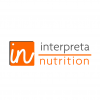Following today’s (17 March 2016) launch of the new Eatwell Guide by Public Health England (PHE), a healthy diet should now include more fruit, vegetables and starchy carbohydrates and have fewer sugary foods and drinks. The new Eatwell Guide shows the revised proportions of the food groups that help us meet official advice and nutrient… Read More
Archive by Author
Intake of saturated and trans unsaturated fatty acids and risk of all cause mortality, cardiovascular disease, and type 2 diabetes: systematic review and meta-analysis of observational studies
In a systematic review of the associations between intake of saturated fat and trans unsaturated fat and all cause mortality, cardiovascular disease (CVD) and associated mortality, coronary heart disease (CHD) and associated mortality, ischemic stroke, and type 2 diabetes, researchers found that there are no associations with saturated fat intakes. Trans fats, however, were found to be… Read More

SACN report recommends halving sugar in diet: how should the food industry respond?
Interpreta Nutrition shared its views on SACN’s report on carbohydrates and health in the latest issue of Table Talk (Issue 2, 31 July 2015), the newsletter from Food Matters Live featuring a round-up of news, views and insight from the world of food, health and nutrition (see www.foodmatterslive.com). The Scientific Advisory Committee on Nutrition (SACN)’s long-awaited… Read More
Nutrition and pregnancy: Scientists challenge ‘eat for two’ myth
28 Jul 2015 A new study, published today in eLife, has shown that women may not need to ‘eat for two’ during pregnancy because the body could adapt to absorb more energy from the same amount of food. The findings may also help to explain why some women struggle to lose weight after giving birth…. Read More
Expert nutritionists recommend halving sugar in diet
In particular consumption of sugar-sweetened beverages should be minimised. SACN advises more fibre in diet by having more fruit and vegetables and wholegrain foods. Starchy carbohydrates should still form basis of your diet. The Scientific Advisory Committee on Nutrition (SACN) advised the government to halve the recommended intake of free sugars to help address the… Read More
Regular consumption of sugary drinks associated with type 2 diabetes
Sugar sweetened drinks may give rise to nearly 2 million diabetes cases over 10 years in the US and 80,000 in the UK. Regular consumption of sugar sweetened drinks is positively associated with type 2 diabetes independent of obesity status, finds an MRC-funded study published in The BMJ this week. Artificially sweetened drinks and fruit juice… Read More
Mother’s environment periconception may affect her child’s life long risk of disease
10 Jun 2015 Scientists have shown for the first time that a mother’s environment before and around the time of conception, a period known as periconception, could permanently change the function of a gene influencing immunity and cancer risk in her child. Diet is likely to play a role in this process, according to the… Read More
Child obesity risk increases almost three-fold in five generations
19 May 2015 Children born since 1990 are up to three times more likely than older generations to be overweight or obese by age 10 according to a new study. Researchers from CLOSER, a consortium of leading UK longitudinal studies funded by the Medical Research Council (MRC) and the Economic and Social Research Council (ESRC), looked at the… Read More

FDA Issues Guidance on Food Allergen Labeling Exemptions
June 18, 2015 The U.S. Food and Drug Administration has issued final guidance to help food manufacturers provide adequate data to support exemptions from the labeling requirements for ingredients derived from major food allergens. The Food Allergen Labeling and Consumer Protection Act of 2004 (FALCPA) requires that food labels identify products containing major food allergens… Read More

FDA Takes Step to Remove Artificial Trans Fats from Processed Foods
June 16, 2015 Based on a thorough review of the scientific evidence, the U.S. Food and Drug Administration today finalized its determination that partially hydrogenated oils (PHOs), the primary dietary source of artificial trans fat in processed foods, are not “generally recognized as safe” (GRAS) for use in food. This action is expected to reduce coronary heart… Read More
